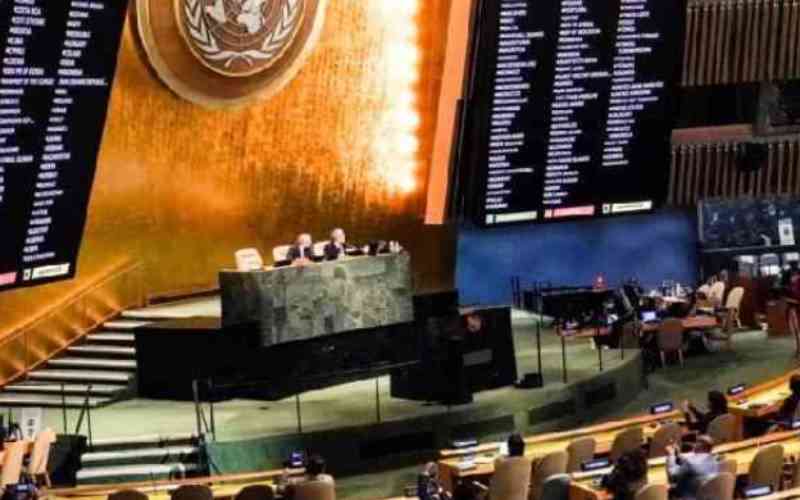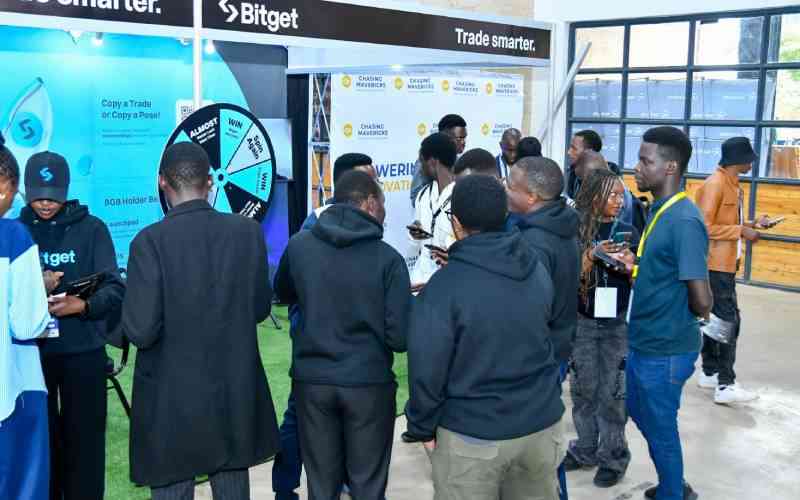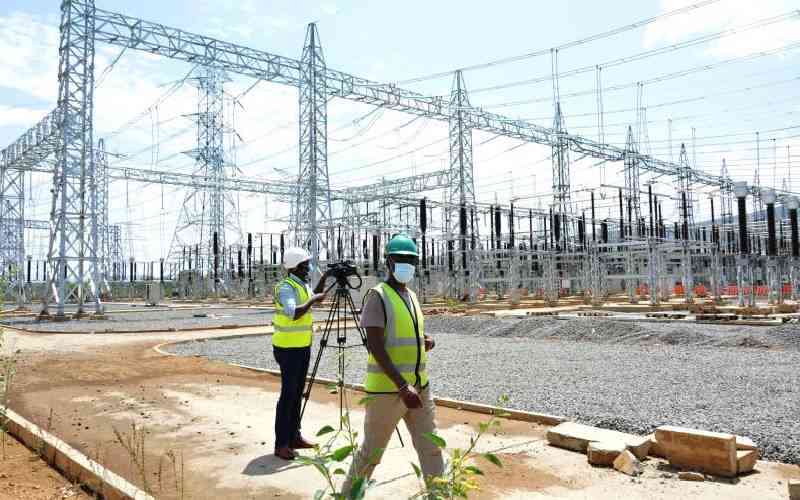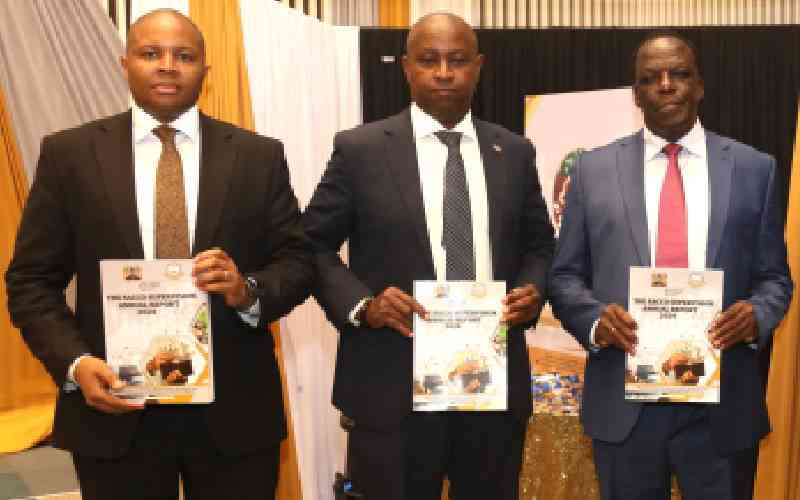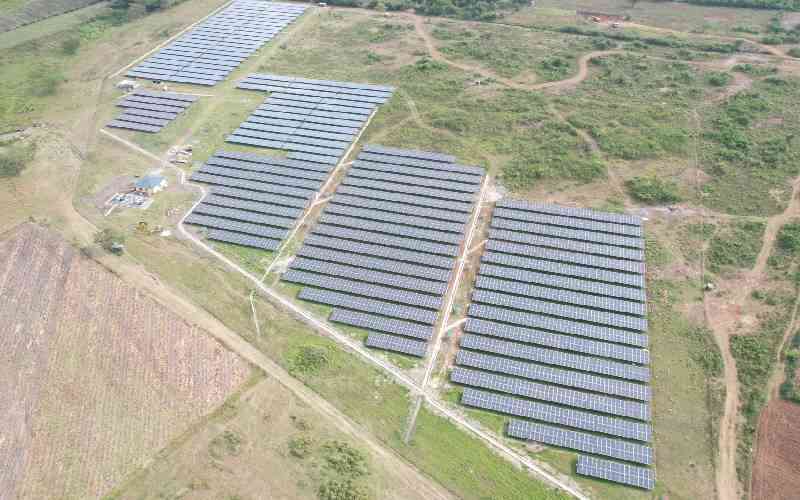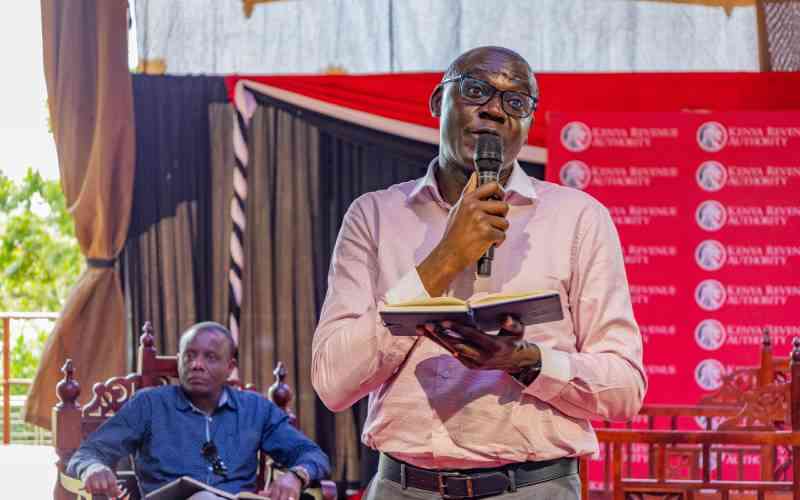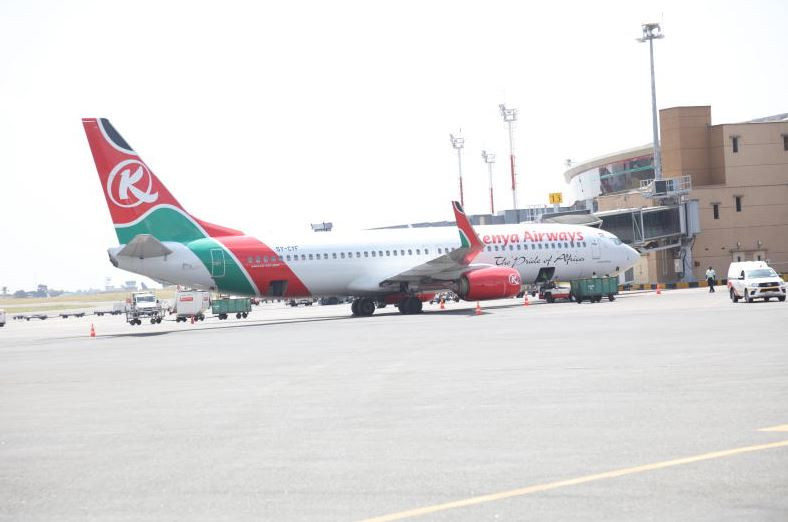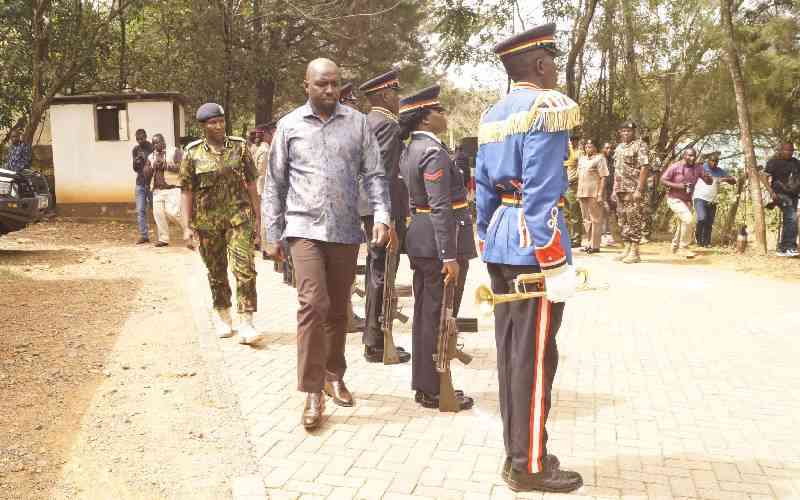
Interior CS Kipchumba Murkomen inspects a guard of honour mounted by police at Migori County Commissioner's office during a security tour of Nyanza region, on September 11, 2025. [Anne Atieno, Standard]
Interior Cabinet Secretary Kipchumba Murkomen has clarified that policemen who solicit money for fuel from Kenyans do so to augment modest disbursements from the government.
Murkomen said most police vehicles run non-stop, day and night, delivering suspects from one location to another, draining the modest fuel allowances. Even though Murkomen made no reference to argue his case, the saga of Albert Ojwang is still fresh in Kenyans’ minds.
Ojwang, was a blogger who was clobbered to death while under police custody. Police had trailed him from Taita Taveta, where he was teaching, to his rural home Homa Bay, some 600 killometres away. From there, he was transported to Nairobi. That’s nearly 1,000 kilometres just to “investigate” one case.
Murkomen, further, said that fueling points are few and far between, necessitating long commutes by the police in search of fuel. Which means they drain the fuels just driving around, not serving wananchi. Lest Kenyans forget, most police lines are dominated by tin shacks, so most officers prefer to cook on open fires. The idea of getting fuel depots close to the stations, therefore, is out of the question.
It remains to be seen if the police “transport” levy proposed by Murkomen will be enshrined in a parliamentary Bill, and whether this new levy will be added to the fuel levies, or even whether it will be surcharged and paid directly to Officers Commanding Stations countrywide.
There are reports that Kenyans are increasingly driving to fuel in neighbouring countries such as Uganda, which transports its crude oil through Kenya, but the product is still cheaper there.
